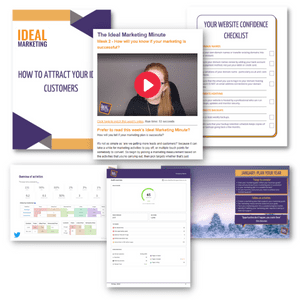The general aim of much of the PR that we carry out for clients is to get great coverage across a range of different media outlets to achieve a specific objective. This might be to build a brand, raise awareness, promote a new product/service or to deliver key messages to potential customers. However, there are many different forms of media and not all of them will be suitable for your company or every individual news story, so how do you choose which ones to target?
Which sectors of the media should you target?
One of the secrets to running a successful PR campaign is to ensure that you have a good knowledge of the newspapers, websites, magazines, journalists or broadcast media that are relevant to your industry.
Trade press – Most sectors will have key trade publications and some of these can be highly influential with an engaged readership that are more likely to be interested in your business than more generic consumer, magazines. So, do your homework. Find out which ones are most widely read (you can get circulation figures from online research or use media databases). You could also ask you current customers which websites and publications they read to give you an idea of which ones you should be focusing your efforts on.
National newspapers – Of course, positive media coverage in a publication like the Times or The Daily Mail is highly desirable. It’s also a tough task. Unless you are a well-known national chain or have an exceptionally strong story, the chances of getting a news story in the national press are relatively slim. That doesn’t mean it’s impossible, but do be realistic about the kind of media coverage your news story is likely to get. Consumer magazines are also highly desirable, but again can be difficult to get into. Timing and research are crucial to success, as well as having a really newsworthy story.
Local/regional newspapers – It’s true that readership figures are falling but regional press does tend to have a loyal core of readers, who are often aged 40 plus. However, many local newspapers are improving their online presence, reporting news stories and including extra features on their websites. This means that the local press can be quite influential and is worthwhile considering, particularly if your business gets most of its customers from a specific geographical radius. Local press is great for companies such as estate agents, solicitors, accountants, recruitment companies and other professional services as well as the restaurant and hospitality sectors. The regional press generally looks for very local-centric stories, often with a strong human-interest theme.
Don’t forget other media such as regional TV and radio stations. Although the number of commercial radio stations has fallen, local BBC and independent commercial radio stations are often interested in strong local news stories. Just like local newspapers, they tend to have a core of dedicated listeners and many are increasing their use of social media to attract a wider audience. Regional TV news programmes can be a little more difficult to get on and obviously need stories that have an interesting visual element, so think carefully about the types of stories that you send to TV and radio – and how you present them.
Tips for creating a targeted PR strategy
A scattergun approach to getting media coverage is unlikely to prove as productive as a targeted strategy. So, decide which media are most appropriate for your news story and which audience you want to reach. For example, if you are an estate agent with several sites across Birmingham, you would benefit from focusing your efforts on publications such as Birmingham Living which is a lifestyle magazine with a property section or the Birmingham Mail which has a digital site known as Birmingham Live with a substantial property section running features and news articles. These are the kinds of publications that potential buyers or tenants would be likely to read and which could also be interested in running good quality editorial. You could also consider the trade press such as Inside Housing or The Negotiator. Although these aren’t usually read by potential homebuyers, it can be used in marketing materials and on your website to help build trust and position you as a market leader in the Birmingham property market.
How to create effective media lists
The next stage is to build relevant lists as targeting the right publications is key. It is better to have a list of ten high quality publications read by your target audience than flood thirty publications with irrelevant news stories and article pitches. This will soon get you added to the spam list. It sounds obvious, but ensure that you read the key publications, so you know what their house style is and the sorts of topics they are interested in running. This will also ensure that you aren’t pitching an idea that has recently been featured.
Creating lists takes research and can be time-consuming. Many PR agencies subscribe to databases which contain readership profiles, circulation figures, contact details for individual journalists etc. to make the job quicker and easier. For example, at The Ideal Marketing Company we use the Agility PR platform to build lists of relevant journalists and publications for each client. Of course, without a PR agency you could carry out your own research online which would enable you to build a reasonable list. However, apart from taking a lot of time, you aren’t always able to get the contact details for specific journalists from a website. For example, you might want to contact the property editor or the health reporter, but websites often don’t go into this level of detail.
Why is it important to build relationships with journalists?
Having a well-researched carefully targeted list also makes it easier to build relationships with key publications and journalists. If they know that you submit interesting news stories or well written features, they are less likely to delete your email without reading it and are much more likely to accept editorial from you. Sometimes they will even contact you for help – which is when you know that you have really succeeded in developing a mutually beneficial relationship.
Like most things that have value, good media coverage doesn’t just happen by chance. It takes planning and an understanding of what you are trying to achieve as well as knowledge of the media outlets that are most appropriate for your business.
For support in developing your own PR strategy or to arrange a free consultation to learn more about how PR could make difference to your business, call Helen on 01858 374 170 or email helen@idealmarketingcompany.com.

Helen is co-founder of The Ideal Marketing Company. She has worked at the company since 2004, having graduated to marketing following a career in educational management in London. As co-founder of the company, Helen believes it is crucial to put the client’s needs first and to deliver a bespoke marketing solution for each organisation. Helen’s great love is copywriting. Her work with clients involves generating great ideas for PR including writing features, press releases and article pitches to build and enhance a client’s reputation in the local, trade and national media.







